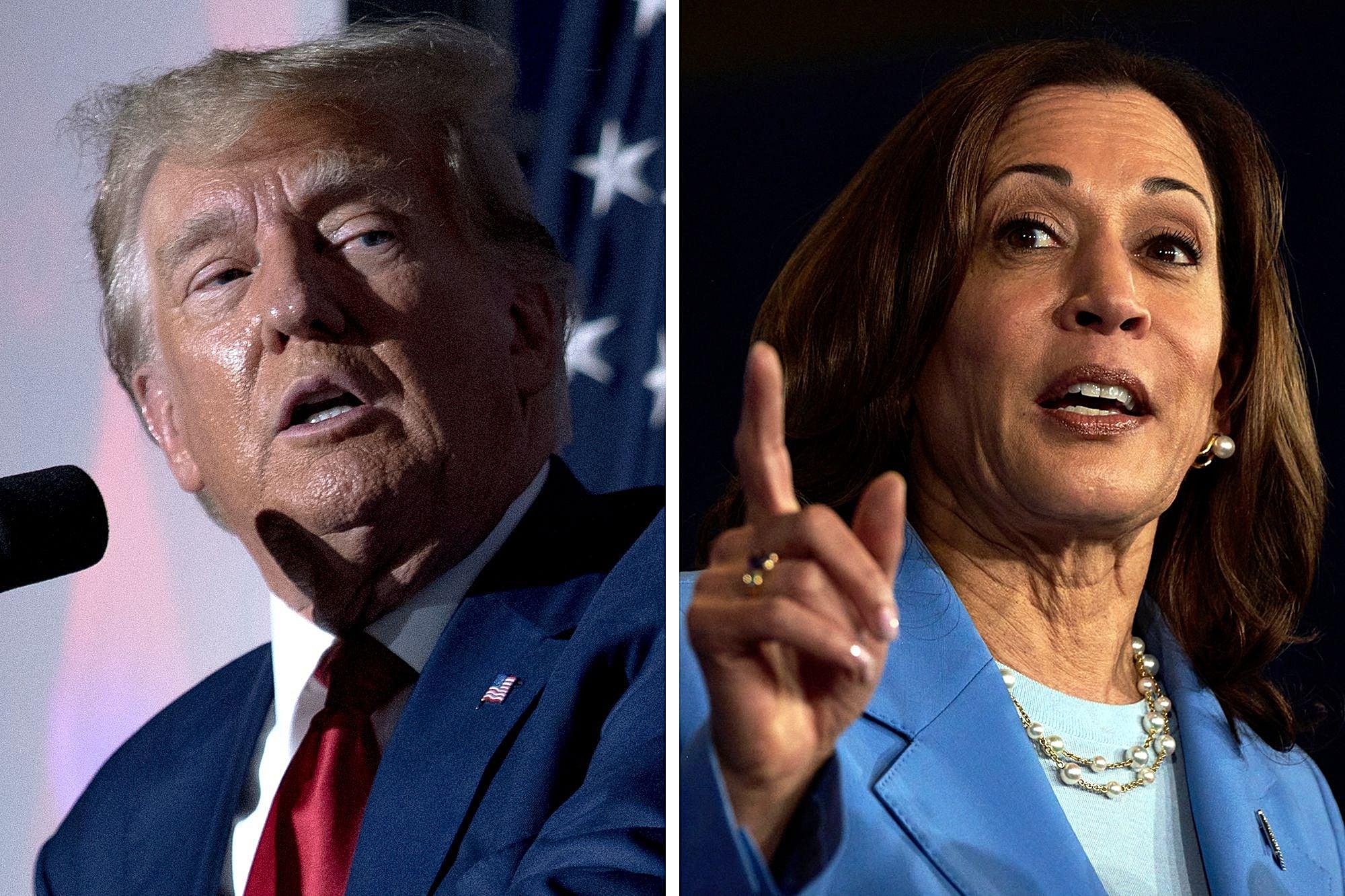The 2024 presidential race is heating up as the election approaches, with financial security and inflation emerging as major concerns among voters. Vice President Kamala Harris and former President Donald Trump have presented contrasting visions for bolstering the U.S. economy.
On August 16, Harris is set to unveil a comprehensive economic plan aimed at making prices more affordable for consumers, including measures to combat price gouging. If elected, she plans to propose a federal ban on corporate price-gouging within the food and grocery industries, a campaign statement revealed on August 14.
This proposal follows the Biden administration’s announcement on August 15 that an agreement had been reached with drug companies to reduce the prices of ten high-cost prescription drugs covered under Medicare.
Meanwhile, Trump has focused his campaign on addressing prices and affordability, aiming to regain the presidency.
The latest data from the Labor Department, released this week, shows that annual inflation has dropped to below 3 percent for the first time since March 2021. This report bears significant weight for Biden and Harris as they seek to shift voter sentiment from negativity to positivity.
Commenting on the report, Biden stated on August 14, “Today’s report shows that we continue to make progress in fighting inflation and reducing costs for American households.”
Despite the easing inflation pressures, consumers are still grappling with rising prices, higher borrowing rates, and a slowing labor market.
Since Biden assumed office in January 2021, prices have surged by more than 20 percent overall. Specifically, gasoline prices have risen by nearly 50 percent, while food and housing prices have surged by 22 percent each, according to data from the U.S. Bureau of Labor Statistics.
In addition, the U.S. job market experienced a significant slowdown last month, with the Labor Department reporting on August 2 that only 114,000 jobs were added. The unemployment rate also rose to 4.3 percent, the highest level since October 2021.
This unexpected news caused a major dip in the stock market indexes, although they eventually rebounded in the days following the report.
Both consumers and companies are grappling with high costs across various sectors, from labor to energy to materials. The producer price index (PPI), which measures prices paid by businesses for goods and services, has risen by 25 percent since January 2021.
This poll confirms previous studies that consistently found the economy to be the most pressing concern for Americans ahead of the November election.
Both Harris and Biden spoke at a gathering at Prince George’s County Community College, which marked their first joint event since Biden withdrew from the presidential race and endorsed Harris on July 21.
They highlighted their administration’s achievement in securing an agreement with drug companies to reduce prices for ten prescription drugs used in treating various conditions, such as heart failures, blood clots, diabetes, arthritis, and Crohn’s disease.
“We have transformed our approach to the economy,” Biden told supporters in Maryland, criticizing Trump and congressional Republicans for potentially increasing costs for middle-class families while reducing taxes for billionaires and large corporations.
Biden also criticized the concept of trickle-down economics, noting that even some Democratic presidents had embraced the idea that when the wealthy thrived, the benefits would eventually reach the rest of society.
“Well, I didn’t notice a single penny trickling down to my dad’s kitchen table,” Biden remarked while praising his own economic agenda focusing on building the economy from the bottom up.
The new drug prices, set to take effect in 2026, are expected to save seniors and other Medicare beneficiaries $1.5 billion in out-of-pocket costs in the first year, according to the White House.
The event in Maryland offered a preview of the Harris campaign’s future direction, with a focus on holding corporations accountable for price increases. Harris emphasized that Big Pharma had inflated the cost of life-saving medications for years, often charging significantly more than the production cost to maximize profits. This message is likely to feature prominently in her campaign speeches.
“Two years ago, as vice president, I cast the tie-breaking vote that enabled Medicare to negotiate drug prices, and it reached the president’s desk,” Harris reminded supporters in Maryland, referring to the Inflation Reduction Act signed into law in August 2022.
On August 16, during a speech in North Carolina, Harris is expected to call on Congress to pass a federal ban on price gouging as part of her economic plan to reduce costs, including grocery bills.
Trump, standing beside a table displaying grocery products like coffee, cereal, bagels, and bacon, cited the skyrocketing prices of everyday goods faced by ordinary Americans.
“Grocery prices have surged,” Trump remarked, pointing to inflated costs of bread, butter, baby formula, eggs, and other groceries.
Trump criticized Harris’s plan to have the federal government restrict price gouging, suggesting it would lead to food shortages and long-term price increases instead of reductions.
Alongside inflation, both campaigns have focused their attacks on the affordability crisis by addressing energy production. Trump and Vance tackled this topic in their speeches, with the former president pledging to immediately reduce prices by increasing oil and natural gas drilling.
Vance supported this view, emphasizing the contributions of energy workers in western Pennsylvania.
“Let’s allow these guys to extract resources from the ground,” Vance urged, referring to oil and natural gas.
Vance argued that increased energy production creates economic opportunities for people by lowering manufacturing costs and making heating homes during winter more affordable. This, in turn, leaves consumers with more disposable income for other expenses.
Both Trump and Vance criticized the Biden-Harris administration’s stance on energy production, alleging that their agenda limited drilling and fracking.

